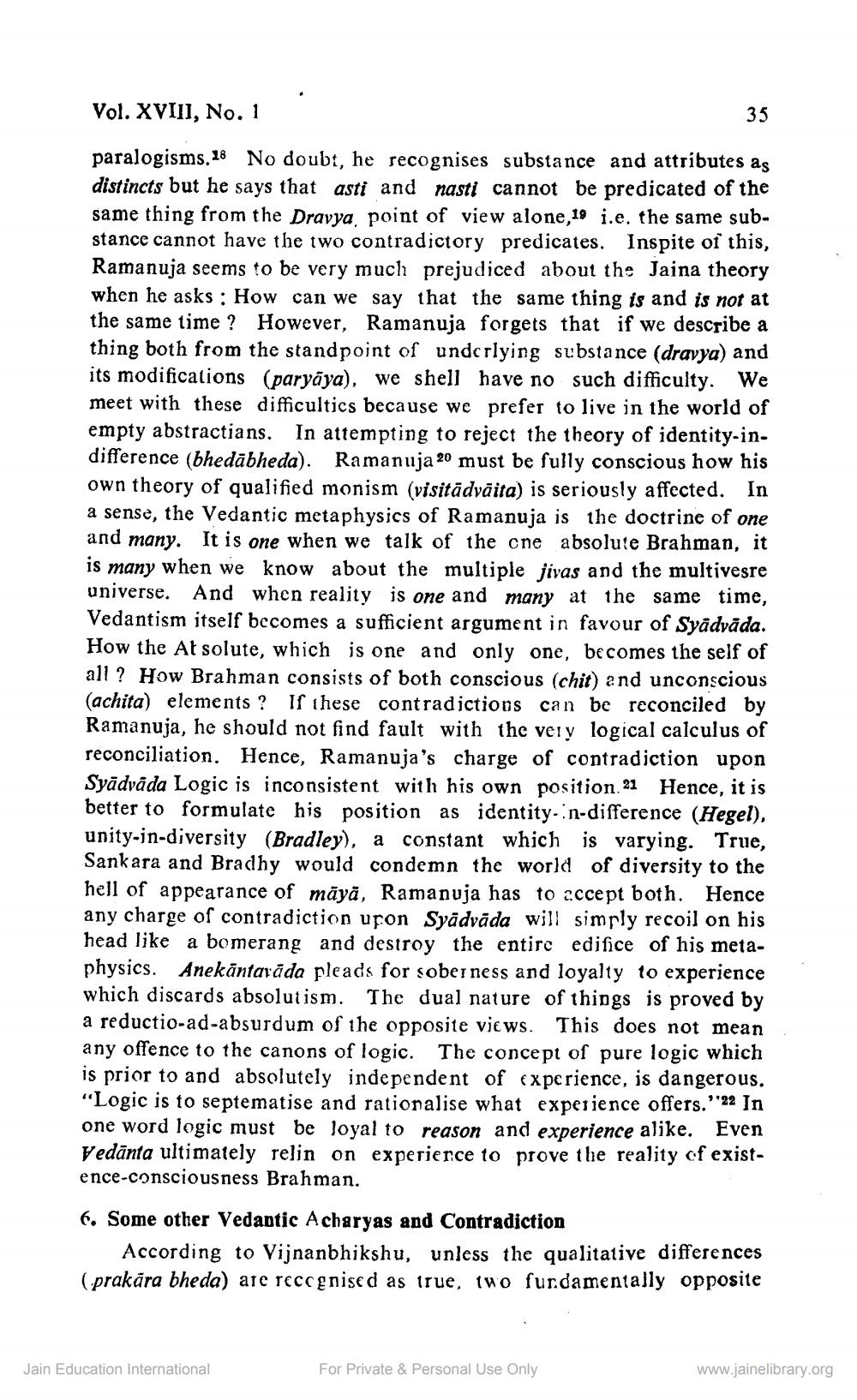________________
Vol. XVIII, No. 1
35
paralogisms. 18 No doubt, he recognises substance and attributes as distincts but he says that asti and nasti cannot be predicated of the same thing from the Dravya, point of view alone, 19 i.e. the same substance cannot have the two contradictory predicates. Inspite of this, Ramanuja seems to be very much prejudiced about the Jaina theory when he asks: How can we say that the same thing is and is not at the same time? However, Ramanuja forgets that if we describe a thing both from the standpoint of underlying substance (dravya) and its modifications (paryaya), we shell have no such difficulty. We meet with these difficultics because we prefer to live in the world of empty abstractians. In attempting to reject the theory of identity-indifference (bhedabheda). Ramanuja 20 must be fully conscious how his own theory of qualified monism (visitādvāita) is seriously affected. In a sense, the Vedantic metaphysics of Ramanuja is the doctrine of one and many. It is one when we talk of the cne absolute Brahman, it is many when we know about the multiple jivas and the multivesre universe. And when reality is one and many at the same time, Vedantism itself becomes a sufficient argument in favour of Syädvāda. How the At solute, which is one and only one, becomes the self of all? How Brahman consists of both conscious (chit) and unconscious (achita) elements? If these contradictions can be reconciled by Ramanuja, he should not find fault with the very logical calculus of reconciliation. Hence, Ramanuja's charge of contradiction upon Syadvāda Logic is inconsistent with his own position. 21 Hence, it is better to formulate his position as identity-n-difference (Hegel), unity-in-diversity (Bradley), a constant which is varying. True, Sankara and Bradhy would condemn the world of diversity to the hell of appearance of maya, Ramanuja has to accept both. Hence any charge of contradiction upon Syādvāda will simply recoil on his head like a bomerang and destroy the entire edifice of his metaphysics. Anekantavada pleads for soberness and loyalty to experience which discards absolutism. The dual nature of things is proved by a reductio-ad-absurdum of the opposite views. This does not mean any offence to the canons of logic. The concept of pure logic which is prior to and absolutely independent of experience, is dangerous. "Logic is to septematise and rationalise what experience offers."*22 In one word logic must be loyal to reason and experience alike. Even Vedanta ultimately relin on experience to prove the reality of existence-consciousness Brahman.
6. Some other Vedantic Acharyas and Contradiction
According to Vijnanbhikshu, unless the qualitative differences (prakāra bheda) are recognised as true, two fundamentally opposite
Jain Education International
For Private & Personal Use Only
www.jainelibrary.org




